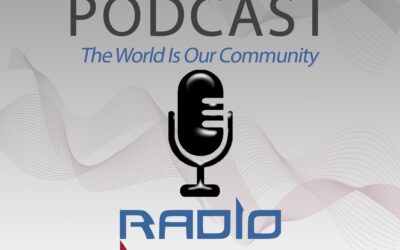 By Annisa Essack
By Annisa Essack
03:03:2022
Education is a fundamental human right for all and is essential for everyone to make the most of their lives. Education reduces poverty, decreases social inequalities, empowers women, and helps each individual reach their full potential.
It also brings significant economic returns for a country and helps societies achieve lasting peace and sustainable development. Education is key to achieving all other human rights.
Ml. In Syria, Habib Bobat and the JUSA team spent the day touring the education structures within the refugee camps.
Ml. Habib says that the education system in Syria is “overstretched, underfunded and fragmented, and it cannot provide safe, equitable and sustained to millions of children.”
According to the statistics, there are 2.4 million children out of school inside Syria, of which 40% are girls. Making the situation worse is that one in three schools in the country can no longer be used as they were damaged, destroyed in the bombardments, or utilised for other military purposes.
He also noted that many students missed out on schooling over the last five to six years, increasing social ills.
Brother Murad from the IHH spoke about the importance of education and the upliftment of the children, especially in Syria.
The instability continues to exist; infrastructure is non-existent in most areas as these were destroyed. Brother Murad says the destruction of the many schools, markets and other institutions destroys the community from within. He added that Syrians are living as a “humanitarian addicted community.”
This means that to rebuild the community, education is crucial, particularly for the youth. This will make them stronger resilient and give them the ability to rebuild their communities and country.
He highlighted the importance of investing in education – vocational. Islamic and modern, comprehensive training ensures that the new generation can be equipped adequately, physically, and mentally.
Together with the JUSA team, Ml. Bilal Vaid has had a lengthy meeting with Ulema in the region to discuss the efforts being put in to ensure that the education for children is furthered.
Ml. Vaid described emotions that one felt as they walked through the camps when they heard the young voices reciting Qur’an or hadith.
Brother Murad interjected at this point, saying that two generations of children have grown up without education. With the loss of experts in other parts of the world, there was an equal need for Islam and secular education to rebuild the nation.
Ml Vaid then spoke about the meeting with the Syrian Ulema, who are based in the education sector in various free cities who face many challenges but are trying to instil the desire to learn Islam.
He added that although there were different challenges faced in the various regions the work is taking place, the need is still significant in terms of the extent of the requirements.
A mural that grabbed the team’s attention reflected the need for education for the people. Brother Mohammed Dadabhai described the mural and what it represented for the people of Syria.
Ml. Bobat concluded with an apt quote: “through knowledge, we will prosper as a nation.”
He added that whilst the Jamiat was meeting the needs of the people, the need for long term sustainable projects, in particular, education is imperative. The focus of JUSA is carrying out fact-finding missions in Syria to further develop and improve on them for the future.



![Embracing Peace in Allah’s Timing [Part 1 in a 2-Part Series] Muallimah Taskeen Karrim](https://i0.wp.com/radioislam.org.za/a/wp-content/uploads/2026/03/WhatsApp-Image-2026-01-31-at-01.51.11-2.jpeg?resize=400%2C250&ssl=1)



0 Comments